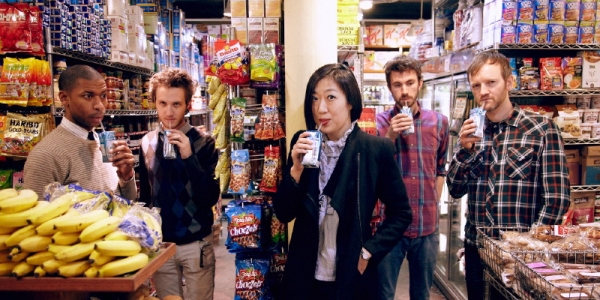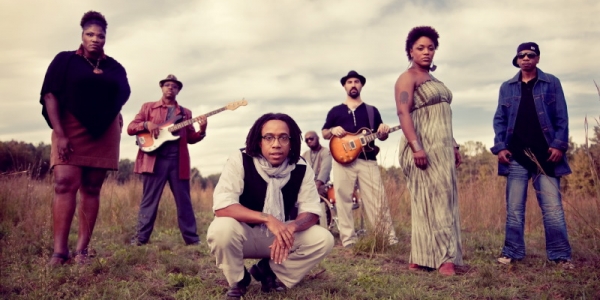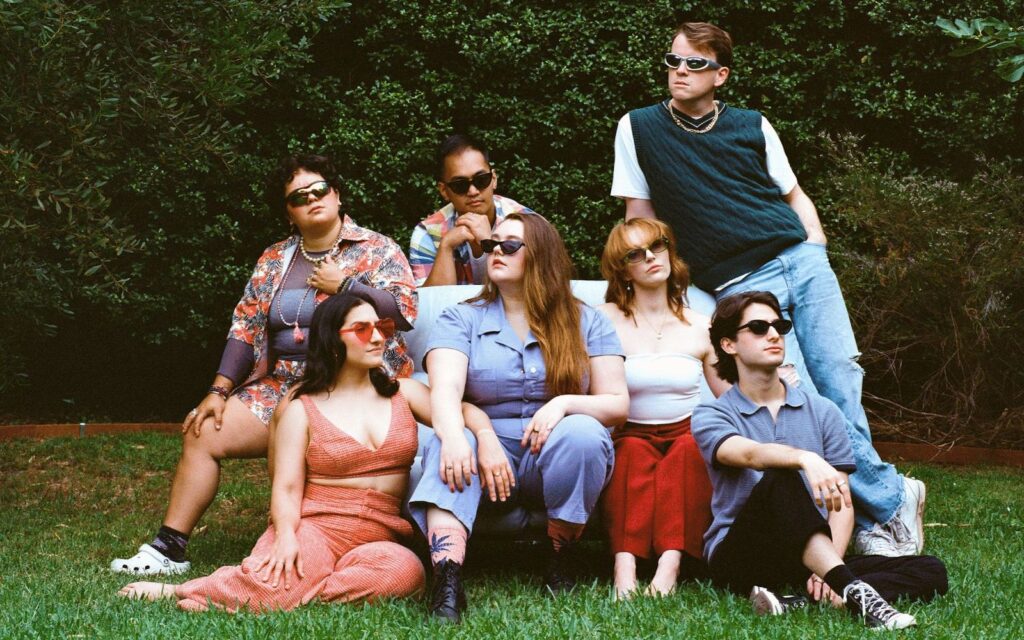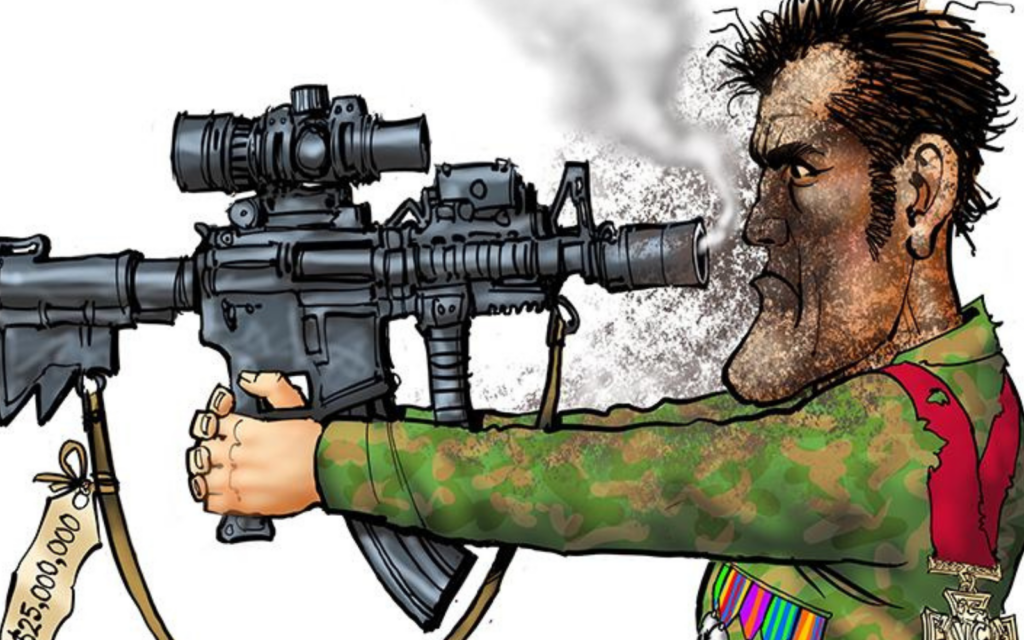In a combination of pop concert, cabaret and darkly humorous autobiographical lament, playwright (not performer) Young Jean Lee conceived of the show when confronted with her own experience of tenuous mortality. “My father died a few years ago, and he died in a pretty terrible way. It’s a story that I tell in the show,” she says.
“Going through that experience I was so struck by how alone I felt. Because when something really terrible happens to you, no matter who you have around it’s really an incredibly lonely experience. I remember at the time really wishing that I could – wishing for some sort of comfort when I was in that state. And so I decided to make a show that was geared specifically towards comforting people who were feeling alone in their pain.”
Young Jean Lee tells stories about loneliness and aging, sickness and death and all of the things people are most afraid of, accompanied by a “really cute” indie rock band Future Wife. “They play music, indie rock songs, and then I sing songs that are a continuation of the stories. And the whole show is basically geared towards comforting people who are in pain,” she says.
She’s been responsible for challenging herself with intensely personal works in previous creations The Shipment and The Church, but with that in mind she is a playwright. Creating a piece of musical theatre that she was the star in is certainly a deviation from her normal practice. “I’m not a performer at all,” she says, “I’m a writer and a director.”
“The way that I start shows is I ask myself what’s the last thing in the world that I would ever want to do, and then I force myself to do that thing. So for me I hated performing, so I forced myself to do a one-person cabaret show with music and dancing.”
And going from behind the scenes to centrestage, she says, was not an easy transition. “Oh my god it was terrible, it was so terrible. It was about as terrible for me as it would probably be for you, to suddenly have to get up on stage and sing and dance and talk in front of people, so it was pretty rough. But I’m starting to really enjoy it, over the course of the last few years we’ve been working on it.”
Lighthearted arrangement is central to her theatrical creations while she confronts prudent issues deftly and playfully. She’s currently touring a nude feminist show filled with uncomfortable subject matter. “People are uncomfortable with seeing breasts and vaginas in a non-pornographic or idealised context. So when confronted with real bodies people tend to freak out a little bit,” she says. But typically, she’s added her peppy touches to its arrangement.
“I knew the audience would be uncomfortable with it so I just made the show incredibly entertaining. It’s just a really funny, entertaining fun show and there’s lots of pop music, so that’s a real kind of fun show.”
Music, it seems, is central to her ability to enliven even the darkest of subject matter. “I just love pop music. I feel like it’s so part of my sensibility. I really like rap, and pop and indie-rock, it’s this wide range of styles and I have a very pop sensibility I think, in general. I definitely don’t include like, Lady Gaga or something, most of it tends to be more independent, more obscure things. [But] pop music is universal.”
With a universal platitude at they heart of it, the message may be humorous, tongue-in-cheek or plain miserable but it’s nonetheless there. “Usually I’m not into shows with a message and this show kind of does have a message, but it’s such a basic message that it almost doesn’t count as a message. It’s more like the style of presentation that is comforting than actually what is said. If you try to comfort somebody when something terrible has happened it’s really hard to do because there’s not a lot of comfort you can give. Like if something really awful happens to somebody, what can you say? So I think what makes this show comforting is it offers very small comfort.”
The comfort, she says, is that “all of the things that we’re afraid of ultimately come down, boil down at the core to the fact that we’re all gonna die. So that seems to be the heart of the matter.”
And in confronting these issues within the piece she’s come to terms with her own mortality and has been able to accept and grieve the loss of her father. ”Doing the show helped a lot, it really helped a lot. I mean, it was something that I was going through anyway, so the show was more kind of a reflection of what I was going through at the time. Because it’s like, when your parent dies, it makes you confront your own mortality in a totally new way.”
BY BELLA ARNOTT-HOARE







